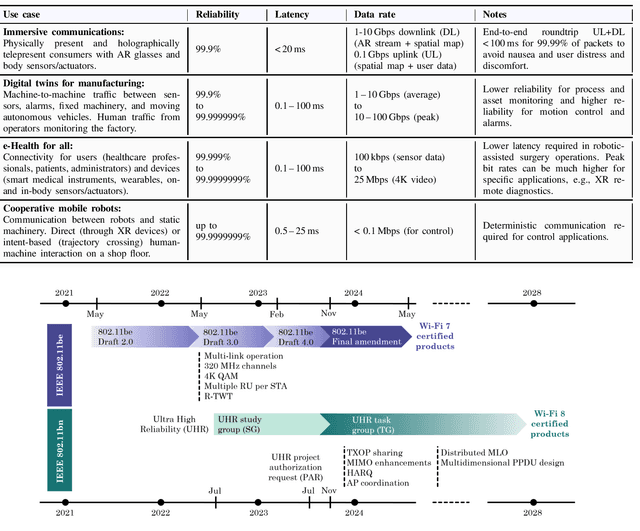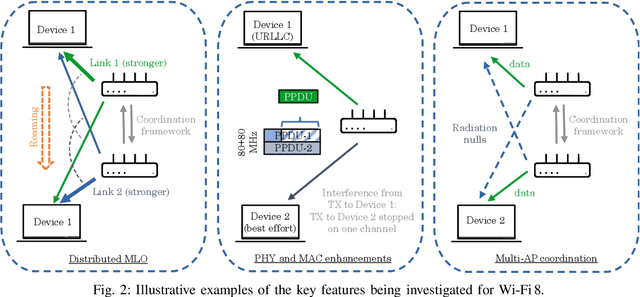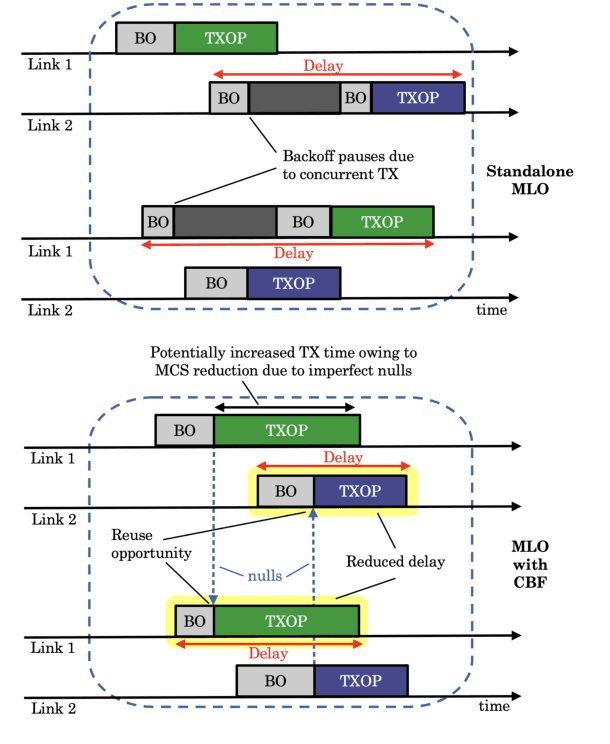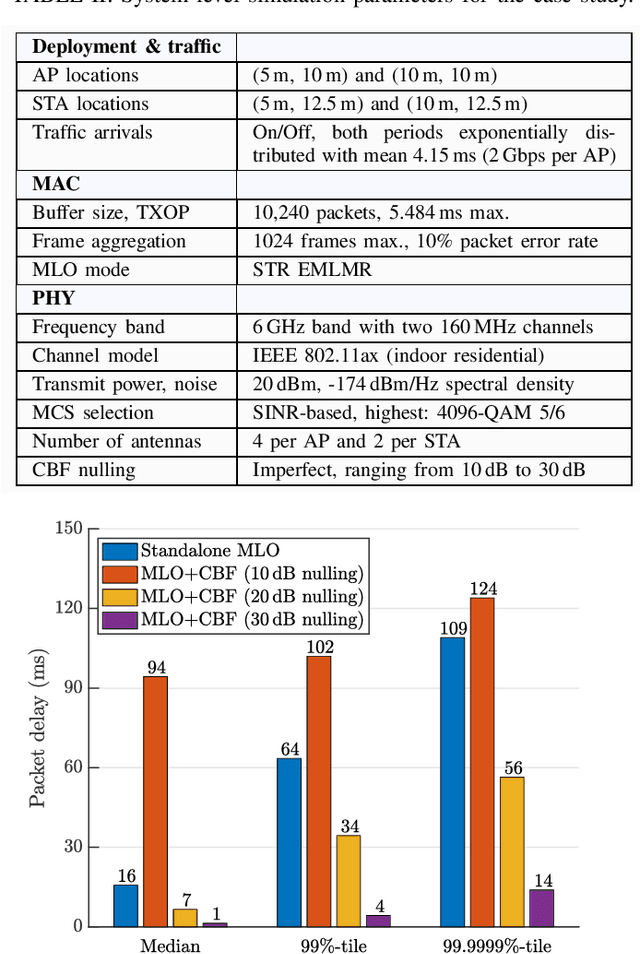Marc Carrascosa
What Will Wi-Fi 8 Be? A Primer on IEEE 802.11bn Ultra High Reliability
Mar 18, 2023



Abstract:What will Wi-Fi 8 be? Driven by the strict requirements of emerging applications, next-generation Wi-Fi is set to prioritize Ultra High Reliability (UHR) above all. In this paper, we explore the journey towards IEEE 802.11bn UHR, the amendment that will form the basis of Wi-Fi 8. After providing an overview of the nearly completed Wi-Fi 7 standard, we present new use cases calling for further Wi-Fi evolution. We also outline current standardization, certification, and spectrum allocation activities, sharing updates from the newly formed UHR Study Group. We then introduce the disruptive new features envisioned for Wi-Fi 8 and discuss the associated research challenges. Among those, we focus on access point coordination and demonstrate that it could build upon 802.11be multi-link operation to make Ultra High Reliability a reality in Wi-Fi 8.
Usage of Network Simulators in Machine-Learning-Assisted 5G/6G Networks
May 17, 2020



Abstract:Without any doubt, Machine Learning (ML) will be an important driver of future communications due to its foreseen performance in front of complex problems. However, the application of ML to networking systems raises concerns among network operators and other stakeholders, especially regarding trustworthiness and reliability. In this paper, we devise the role of network simulators for bridging the gap between ML and communications systems. Network simulators can facilitate the adoption of ML-based solutions by means of training, testing, and validating ML models before being applied to an operative network. Finally, we showcase the potential benefits of integrating network simulators into ML-assisted communications through a proof-of-concept testbed implementation of a residential Wi-Fi network.
 Add to Chrome
Add to Chrome Add to Firefox
Add to Firefox Add to Edge
Add to Edge